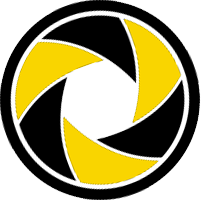It was deep-red perhaps a sort of blackish red-orange.
In any case, it was a vivid, intense color I’d never seen before.
My experience of the atomic bombing in Hiroshima
I joined the army right after I graduated from college, and I was stationed at Kanawajima Island, Ujina, Hiroshima City as a technical captain, a plant manager of a radio factory, and a company commander of repair division, field Army Marine Regiment Headquarters (Akatsuki 6140 Corps).
About 8 o’clock in the morning on August 6, I saw a blue flash that looked like a short circuit, followed by the sound of a blast and a beautiful pink cloud in a shape of mushroom near the center of Hiroshima. The bureau of the company was located 6.5km south-southeast from the hypocenter. All the areas towards the city were engulfed in flames. That evening, transporting of victims began, victims whose bodies were severely burnt and entirely black. This was because of the radioactive black rain that had shifted to the north from the epicenter. I managed to evade the radiation disease because the black rain had shifted to the north.
There were people who died while being transported, and small children who were parted from their parents and did not even know their names. When I got to the temporary shelter, there were many patients groaning and complaining about being hot.
That night, I went to the center of the city and set up headquarters at Koibashi, two kilometers west from the hypocenter. I began treatment in a temporary tent, but there was very little I could do for the patients.
I learnt that it was the A-bomb only after Dr. Nishina’s group from the physics and chemistry laboratory in Tokyo came to measure radiation.
On August 15, although it was a rather unclear broadcast, it was confirmed that the war had ended and we were able to go back home alive; therefore, we, technical officers, gathered up all the alcohol there was and threw a party. I was listening to American short-wave broadcasting while repairing radios of big ships and was aware that the war situation was in a critical state, contrary to the announcement made by the Imperial Headquarters. Soldiers knew a lot about the Potsdam declaration, so there was hardly any confusion. I allowed workers and soldiers to take all the tools and testers they could carry back home.
(2010)





